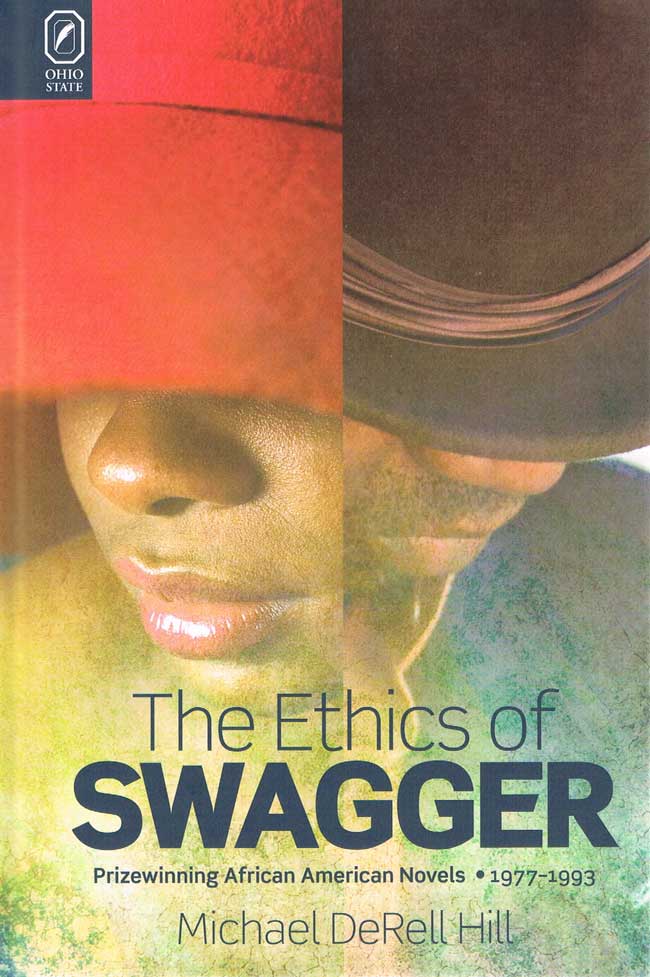The Ethics of SwaggerPrizewinning African American Novels, 1977–1993Michael DeRell Hill |
 2/20/2013 Literary Criticism/ 195 pp. 6x9  $29.95 paper 978-0-8142-5379-3 Add paper to shopping cart Shopping Cart Instructions Review/Change Shopping Cart & Check-out | |||
|
Explore More American Literature Review of The Ethics of Swagger by Irvin J. Hunt P. Jane Splawn Review of The Ethics of Swagger The Cost of Success: Rap Music, Money, & Civics “Graceful Living: Martin Luther King, Jr., and the Continued Relevance of Grace,” by Michael Hill Michael Hill on James Alan McPherson Hubbard Group Black Male Retreat “UI professor a ‘walking encyclopedia’ of African-American novels,” from The Daily Iowan |
“Michael Hill assesses the prizewinning works of Ralph Ellison, Toni Morrison, Alice Walker, Gloria Naylor, David Bradley, John Edgar Wideman, and Ernest Gaines. While most works by these African American novelists have been looked at individually, or as certain obvious pairings, a study such as this one puts these works in dialogue with one another. This book is a provocative one that brings an underappreciated topic to light.” —Carol E. Henderson, professor of English and Chair of Black American Studies at the University of Delaware “In The Ethics of Swagger Michael Hill argues that black writers in the late twentieth century pioneered a new aesthetic mode designed to negotiate mainstream accolades and expectations while unapologetically serving and representing African American culture. Hill’s unique and timely book enriches scholarly understanding of the diverse aesthetics within contemporary African American literary production.” —Cherene Sherrard-Johnson, professor of English at the University of Wisconsin-Madison After World War II and well beyond the Black Arts Movement, African American novelists struggled with white literary expectations imposed upon them. Aesthetics as varied as New Criticism and Deconstruction fueled these struggles, and black writers—facing such problems—experienced an ethical crisis. Analyzing prizewinning, creative fellowship, and artistic style, this book considers what factors ended that crisis. The Ethics of Swagger explores how novelists who won major prizes between 1977 and 1993 helped move authors of black fiction through insecurity toward autonomy. Identifying these prizewinners—David Bradley, Ernest Gaines, Charles Johnson, Toni Morrison, Gloria Naylor, Alice Walker, and John Edgar Wideman—as a literary class, this book focuses on how they achieved imaginative freedom, recovered black literary traditions, and advanced the academic study of African American writing. The post–Civil Rights era produced the most accomplished group of novelists in black literary history. As these authors worked in an integrating society, they subjected white narrative techniques to the golden mean of black cultural mores. This exposure compelled the mainstream to acknowledge fresh talent and prodded American society to honor its democratic convictions. Shaping national dialogues about merit, award-winning novelists from 1977 to 1993, the Black Archivists, used swagger to alter the options for black art and citizenship. Michael DeRell Hill is assistant professor of English and African American Studies at the University
of Iowa. | |||

